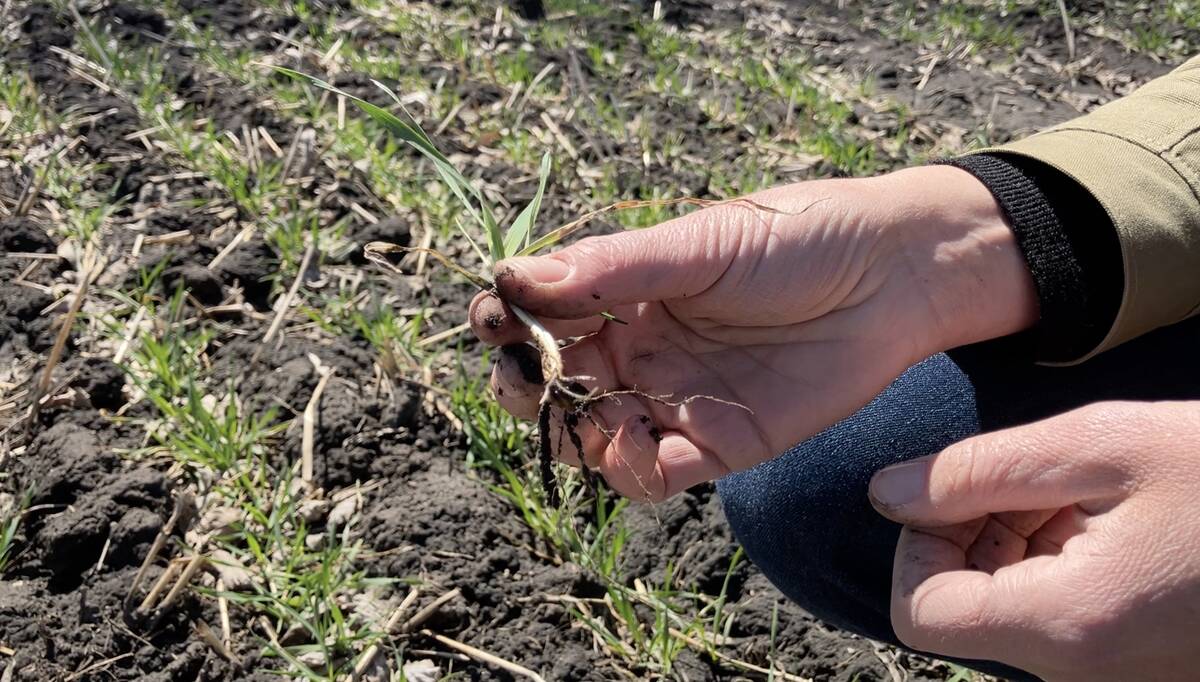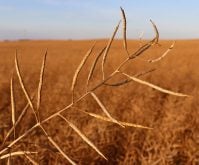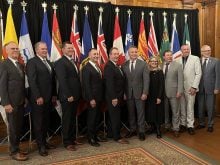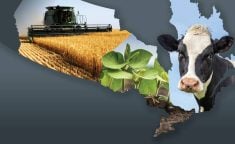The new United States administration supports free trade, science-based decision-making and climate change mitigation.
And it’s seeking like-minded allies for all three.
“From a USDA (United States Department of Agriculture) perspective what we are interested in is building alliances of like-minded nations on agriculture, on the role of innovation in agriculture, and on the steps that agriculture needs to take in connection with climate… ” United States Secretary of Agriculture Tom Vilsack told reporters attending the North American Agricultural Journalists’ virtual annual meeting April 26.
“So when we have a food summit… or any of the other international forums where there is a discussion about agriculture… a discussion about rules or regulations and trade, that we have a very consistent position of believing in trade, in believing in science-based rule making and doing everything we can to make sure that if there are those opposed to science-based rule making… that we have a number of allies with us to resist that effort.”
Read Also

Manitoba farmers wary of research hit after AAFC cuts
Agriculture and Agri-Food Canada cuts claim Portage la Prairie research farm; Manitoba farms groups wrestle with potential impact.
Such comments are likely to be welcomed by Canada’s agricultural sector in the wake of the former Trump administration’s protectionism and unpredictability.
Why it matters: The United States, Canada’s biggest agricultural trading partner, traditionally promoted free trade, but eschewed that role during the Trump administration. The Biden administration’s rhetoric is for trade, but will its words be matched by action?
The U.S. also wants to fix the World Trade Organization (WTO), which works to encourage trade and enforces the trade rules.
“I think there is a growing consensus and recognition that there are many things that need to be fixed in the WTO and I believe that this administration is committed to working with other nations to try and figure our how to do that,” Vilsack said.
When it comes to the U.S.-Mexico-Canada Agreement (USMCA) the issue is whether or not it will be implemented as intended, he said.
“That will certainly be a focus from USDA’s perspective as well as the opportunity for potentially improved access on wheat, which was also a critical part of that agreement, Vilsack said.
The U.S. has long criticized Canada’s supply management system for dairy production, which severely restricts American dairy exports to Canada. Most Canadian dairy farmers support supply management because by regulating domestic production and restricting imports farmers generally earn a profit, rather than experiencing the boom and bust their U.S. counterparts face in an open market, despite government subsidies.
Having served eight years as agriculture secretary under the Obama administration, Vilsack was already a critic of supply management, but his antipathy may have grown having served as president and CEO of the U.S. Dairy Export Council from February 2017 until joining Biden’s cabinet earlier this year.
Despite the new administration’s support for free trade, it’s not expected to give up the ‘separate piece’ the former administration negotiated with China — a bilateral agreement committing China to buy billions of dollars’ worth of American farm products.
Moreover, Democrats traditionally are more protectionist than Republicans and both parties push buy-American policies that at the very least contravene the spirit and sometimes the letter of USMCA.
Meanwhile, countries such as Canada that compete with the U.S. in international agricultural markets can expect the U.S. to up its game. Working for the U.S. Dairy Export Council “… certainly made me much more aware of the importance of exports and the aspects of exports that need to be emphasized by the Department of Agriculture and by agriculture generally.”
The U.S. needs more boots on the ground to listen to what customers want, he added.
“We need to continue to promote U.S. agriculture in trade missions and trade shows and webinars and seminars and a variety of different ways to communicate the benefits of U.S. agriculture generally and specific commodities,” Vilsack said.
“I can tell you that I called a lot more ag ministers and secretaries and commissioners around the world in the first 60 days that I have been on this job (as agriculture secretary) than I had done in the first months or year the first time I had this job because I have a much better understanding and deeper understanding of the importance of it.”
Vilsack told reporters agriculture will play a big role in Biden’s efforts to mitigate climate change by cutting greenhouse gas emissions.
“We’re looking for creative ways not only to use existing tools, but use the tools that we have at USDA to incent, to compensate, to pay farmers for taking steps that we know will impact and affect our ability to reduce the risk of climate change and to adopt and mitigate the consequences of it,” Vilsack said.
However, that doesn’t include, as some have suggested, the government confiscating farmers’ land as part of Biden’s 30 by 30 plan to conserve at least 30 per cent of U.S. land and ocean by 2030, Vilsack said.
“… this discussion around 30 by 30 is really, really off base,” he said. “There is no intent to take land away from farmers. I have said it, boy, I don’t know how many times I’ve said it, but I’ll say it again, the goal here is to create new opportunities for farmers to benefit by embracing climate-smart agriculture practices.”
Nor does Biden’s plan include forcing Americans to eat less beef.
“I mean sometimes folks, in the political world games get played and… there’s not a factual basis for the issue, but also knowing that someone is going to pick it up… ” Vilsack said. “This, I think, is a good example of this.”
However, Vilsack said there are individual states “where that kind of activity is taking place.”
Some in the medical field are suggesting “balance” when it comes to meat consumption, he added.
“There are other efforts internationally for sure, but not at this point in time with the Biden administration and not at the USDA,” Vilsack said.
Biden spoke to Vilsack a couple of times before he agreed to join cabinet, Vilsack said.
“The only reservation was family,” he said. “Some things have changed in my life in the interim between the time I was secretary before and now. Family has gone through some pretty tough times and that makes you think more clearly and more specifically about your priorities. What made this decision easy for me at the end of the day was my family basically suggesting that they believed that I could make a contribution, the president believed that I could make a contribution.”
















